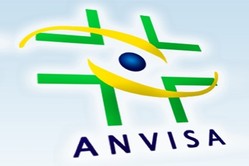Brazil's drug traceability pilot phase 'suspended'
Phil Taylor, 07-Oct-2015
 Brazil's medical products regulator has announced a delay in the implementation of its national medicines tracking scheme that some believe could herald a rethink of the entire initiative.
Brazil's medical products regulator has announced a delay in the implementation of its national medicines tracking scheme that some believe could herald a rethink of the entire initiative.
An announcement by ANVISA towards the end of last week said it would suspend one aspect of the RDC 54/2013 regulation - the requirement for pharma manufacturers to have serialised and tracked three batches of product through the supply chain by some companies by December 10.
At the moment it is unclear if that delay also applies to the deadline for all drugmakers operating in the Brazilian market to have serialised and tracked batches by December 2016.
However, the deferral - which some commentators believe could delay the entire programme by two to three years - comes against a backdrop of rising resistance to the scheme, which is regarded as being one of the most complex track-and-trace regulations in the world.
At a meeting held on October 1, ANVISA's board of directors agreed "on the need for some adjustments" to RDC 54/2013, in what is being seen as an acknowledgement that it will have to amend some of the data exchange elements of the requirements.
A primary point of contention in the current wording of the resolution is the requirement for a medicine's license holder to receive serialisation data from its trading partners, including distributors, which then had responsibility to report that to ANVISA.
Now, the Brazilian regulator has recognised the problems with that approach with regard to "anticompetitive and predatory behaviour between companies" and agreed that a centralised reporting model should be adopted, with "production, distribution and marketing data … collated by ANVISA."
Such concerns were raised in recent weeks by Abrafarma, a trade association representing pharmacies in the country, which suggested the current process could contravene privacy laws and result in price manipulation and unfair competition.
Meanwhile, a bill tabled in the Brazilian Senate at the end of June is seeking an extension of the three-year deadline for full implementation to 10 years.
ANVISA said in its statement that while other countries such as Turkey and Argentina have implemented traceability successfully, the size of Brazil's market makes it a more challenging project.
According to a survey conducted by the agency in 2014, more than 6,000 products are distributed in 3.9bn individual packages each year in Brazil, with many of them sold through a network of 71,000 private pharmacies.
Related articles:

©
SecuringIndustry.com




 Brazil's medical products regulator has announced a delay in the implementation of its national medicines tracking scheme that some believe could herald a rethink of the entire initiative.
Brazil's medical products regulator has announced a delay in the implementation of its national medicines tracking scheme that some believe could herald a rethink of the entire initiative.